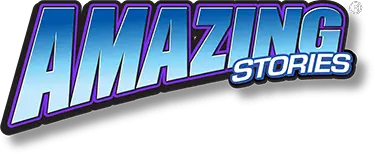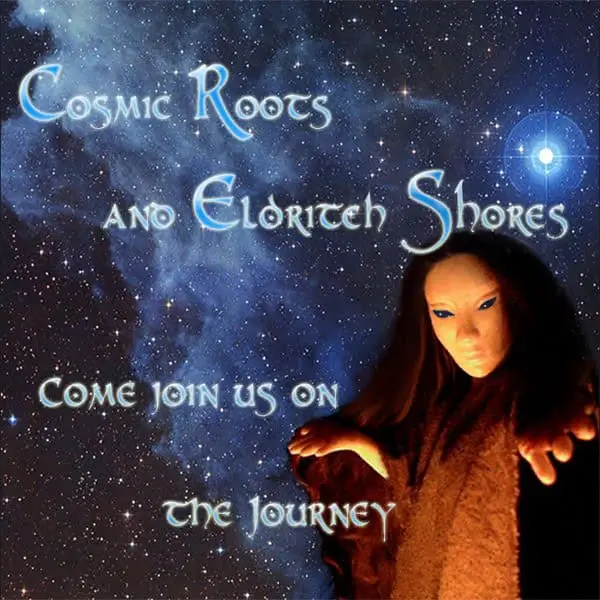Ongoing Submissions: Amazing Stories

Payment: Six cents per word
Introduction
So. We’re all geeks here, so we probably don’t have to tell you that Amazing Stories was started in 1926 by Hugo Gernsback, giving it the distinction of being the first science fiction magazine. You already know that Amazing Stories published many of the early greats in the field, including Jules Verne, H. G. Wells, E. E. “Doc” Smith, Ursula Le Guin, Isaac Asimov, John Campbell Jack Williamson and Claire Winger Harris.
But what has Amazing Stories done lately?
The field of science fiction (or scientifiction as Gernsback liked to call it) has changed substantially in the ninety years since Amazing Stories was first published. For one thing, science has progressed substantially, giving us men on the moon, a map of the human genome, virtual reality, the Internet of things, and real robots and artificial intelligence; never before have science fiction writers had so many toys to play with, and new ones seem to be appearing every day. For another thing, science fiction readers are more sophisticated than they were an almost century ago; they’ve been there and done that with the formulae of the genre, and they’re looking for what’s next.
Amazing Stories plans to be what’s next.
What We’re Looking For
Amazing Stories is looking for short stories that are fresh and new. We want to be surprised. We want to be delighted. We want your stories to be amazing. It’s not enough to be technically proficient and have a sort of, somewhat semi-original idea; we want to be dazzled by your original style and substance.
Remember when science fiction was optimistic, when the future was something to be embraced as a bold adventure instead of a place of dystopias, seemingly endless wars and mutant monstrosities to be feared? Amazing Stories will not shy away from stories that explore the negative impacts of technologies on individuals and society, but we have a strong preference for stories that take a bright view of human ingenuity and the possible futures we can make with it. Have you ever read a short story or novel and thought to yourself, “I want to take part in making that future a reality?” That is what we would like to see.
We intend to have a balance of relatively known and relatively new writers. Don’t be reluctant to submit stories just because you aren’t a famous writer – if you have an original idea and style, submitting to Amazing Stories could be your first step to becoming one.
We are happy to consider stories with a strong point of view, especially in light of the fact that one of the strengths of science fiction is its exploration of how science and technology can change interpersonal relationships and politics. However, we do not want stories that are basically political screeds or other kinds of preaching. Point of view needs to arise naturally out of the workings of the plot and the interactions of the characters.
We will not reject stories solely because of “adult” content. Keep in mind, however, that such content is not in keeping with our optimistic approach, which will make stories with graphic content (of a sexual or violent nature) a hard sell.
Amazing Stories encourages visible minorities, QUILTBAG writers and members of other minority or marginalized groups to submit to the magazine. The future will be diverse; we would like to see that reflected in the stories we tell and the writers who tell them.
We speak humor here. Well written humorous stories are always welcome.
The Deets
LENGTH: 1,000 to 10,000 words
PAYMENT: Six cents per word. Payment is upon final acceptance.
RIGHTS: Amazing Stories buys first world publication rights. In addition, we are buying non-exclusive electronic archival rights, in perpetuity, and the right for non-exclusive publication in the quarterly issue (ebook and print on demand, as well as a print “collector’s edition”). We also ask for non-exclusive rights to republish the story in an anthology for a separate fee.
REPRINTS: Although Amazing Stories publishes reprints, they will be limited in number and solicited by the publisher, so please do not submit them (although suggestions are appreciated). The reprint rate is $100 regardless of story length.
SUBMISSIONS: We do not accept emailed or print submissions. Stories must be submitted using our online submission system, which will be open starting on a date which we will announce. This will require setting up an account. Under LogIn on the top right corner of this page, you will be asked to create a username and supply your email address. When you have submitted this information, you will receive an email asking you to activate your account. Click on the link in the email and you will now have an Amazing Stories submissions account.
When you next log onto the submissions page, you will see more options, including “Submit a Story” and “Stories.” When you click on “Submit a Story,” you will be asked for information about the story and to upload a digital copy. If you want to see a list of stories you have submitted and what their current status is, click on the “Stories” button.
Amazing Stories uses a randomized submission system, so please make sure that your name does not appear anywhere on the manuscript; if any identifying information appears anywhere in your submission, it will be rejected unread. We could repeat this instruction five times to show you just how serious we are about it, but we’d hate to waste the bandwidth, so let’s assume that you are paying attention and will follow it.
SIMULTANEOUS SUBMISSION: No. Just…no.
MULTIPLE SUBMISSION: Also no.
MANUSCRIPT FORMAT: Do we have to tell you to use standard manuscript format? Really? Double spaced? Bold and italics in bold and italics? If you’re in doubt, you can find the standard guidelines here: www.sfwa.org/2008/11/manuscript-preparation/. But Remember: DO NOT include your name on the ms.
Via: Amazing Stories.
- About the Author
- Latest Posts
Stuart Conover is a father, husband, published author, blogger, geek, entrepreneur, horror fanatic, and runs a few websites including Horror Tree!












